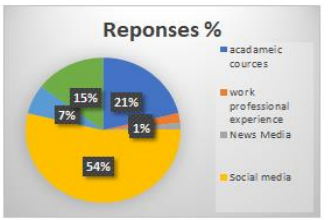Perception towards AI Usage and Implementation: A Study on College Students of Jalandhar City
Keywords:
AI, College Students, Jalandhar, Perception, Technology ImplementationAbstract
Artificial Intelligence (AI) has become an important part of modern technology, impacting various sectors including education. This study examines college students` perceptions of the usage and implementation of AI in Jalandhar City. The objective is to understand their attitudes, concerns, and expectations regarding AI technologies. A quantitative research approach was employed, utilizing a structured survey distributed to 150 students from the institute named” Innocent Hearts Group of the institute “ in Jalandhar. The survey assessed their awareness of AI, perceived benefits and risks, and the influence of AI on their future career prospects. The results reveal that while students generally hold a positive view of AI`s potential to enhance their educational and professional opportunities, there are considerable concerns about data privacy and job displacement. The study also indicates that students with prior knowledge of AI technologies tend to have a more positive attitude. These findings underscore the importance of educational institutions embedding AI knowledge into their curricula and addressing students` concerns to foster a more informed and balanced perspective on AI. This research contributes to understanding how the younger generation perceives emerging technologies and provides insights for policymakers and educators to better support students in navigating the evolving technological landscape.
References
Jordan, M. I., & Mitchell, T. M. “Machine learning: Trends, perspectives, and prospects”. Vol.349, pp.255-260, 2015.
Ido Roll, & Wylie, R. “ Evolution and revolution in artificial intelligence in education”, International Journal of Artificial Intelligence in Education, pp.582–599, 2016.
Allen, C., Wallach, W., & Smit, I, “Artificial intelligence and moral intelligence Ethics and Information Technology”, Vol.18, Issue.3, pp.149-155, 2016.
PatrickBlessinger, Mandla Makhanya, “International Perspectives on the Role of Technology in Humanizing Higher Education” Emerald Group, Vol.33, 2020.
Ahmet Gocen, Fatih Ayde mirb, “Artificial Intelligence in Education and Schools“, Research on Education and Media, Vol.12, 2020.
Tumaini Kabudi, Ilias Pappas, DagHåkon Olse, “AI-enabled adaptive learning systems: A systematic mapping of the literature”, international journal, Vol.2, 2021.
Christopher Collins, Denis Dennehy, Kieran Conboy, Patrick Micallef, “Artificial intelligence in information systems research: A systematic literature review and research agenda”, International Journal of Information Management, Vol.4, 2021.
Susan Nwadinachi Akinwalere1 and Ventsislav Ivanov, “Artificial Intelligence in Higher Education: Challenges and Opportunities”, International Journal in Artificial Intelligence in Higher Education, Vol.12, pp.1-15, 2022.
Russell, S., & Norvig, P., “Artificial intelligence: A modern approach”(4th ed.). Pearson, 2022.
David Gibson, “Learning theories for Artificial intelligence promoting learning processes”, British Journal of Education and Technology, pp.1125-1146, 2023.
D. Wang, L. Feng, J. Ye, J. Zou, YZheng, “Accelerating the integration of ChatGPT and other large-scale AI models into biomedical research and healthcare”, Med Comm - Future Med. 2 (2, 2023.
Ning Wang, James Lester,” K-12 Education in the Age of AI: A Call to Action for K-12 AI Literacy”, International Journal of Artificial Intelligence in Education, Vol.33, pp.228–232, 2023.
Dr. K. Ravishankar, Dr. K Loga Sakthi, “Impact of artificial intelligence on students’ sustainable education and career development using extended toe framework”, Korea review of international studies, Vol.16, 2023.
Shahzada Akhter1, Mir Rahul Ahmad2,Monika Chibb3, Asif Farooq Zai4* and Mohd Yaqoob5, “ Artificial Intelligence In the 21st Century: Opportunities, Risks And Ethical Imperatives “,Vol.5, pp.4600-4605, 2024.
Yuzhou Qian a, Keng L. Siau b, Fiona F, “Societal impacts of artificial intelligence: Ethical, legal, and governance issues”, International journal by Elsevier pvt ltd, social impact 3, 2024.

Downloads
Published
How to Cite
Issue
Section
License

This work is licensed under a Creative Commons Attribution 4.0 International License.
Authors contributing to this journal agree to publish their articles under the Creative Commons Attribution 4.0 International License, allowing third parties to share their work (copy, distribute, transmit) and to adapt it, under the condition that the authors are given credit and that in the event of reuse or distribution, the terms of this license are made clear.






